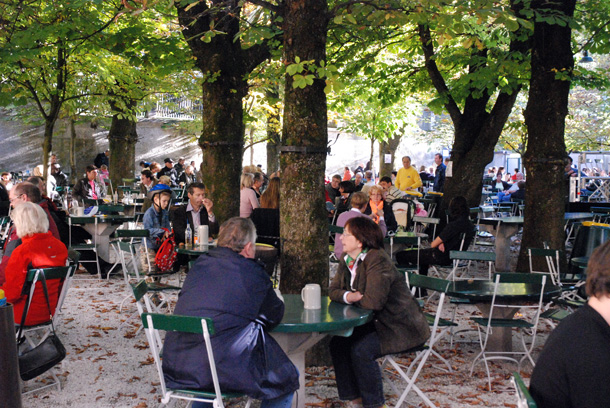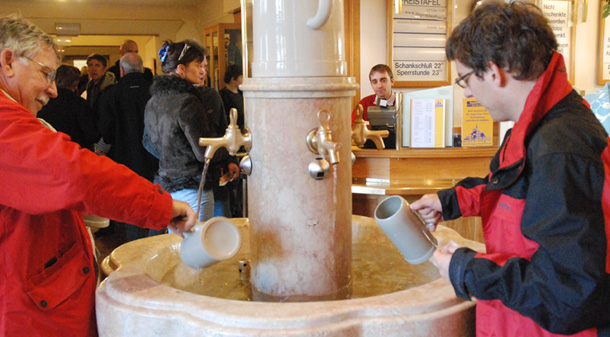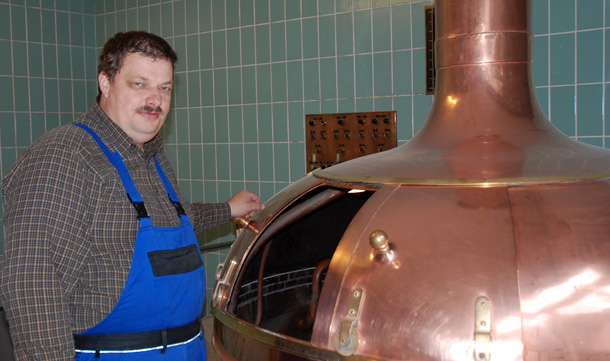
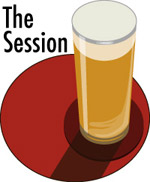 The topic for The Session #137 today is German Wheat Beers. Head over to Roger’s Beers to see what other contributors are writing.
The topic for The Session #137 today is German Wheat Beers. Head over to Roger’s Beers to see what other contributors are writing.
It’s been almost 10 years since we stayed at Brauerei Gasthof Schneider in Bavaria, owner Josef Schneider (pictured above) gave me a tour, and later I talked with his son, Matthias. Matthias attended brewing school and worked for Paulaner in China before returning home in 2008. What I learned appeared in Brewing With Wheat, so here’s an excerpt, with a brief update at the end.
Listening to Josef Schneider talk about brewing wheat beers could make you start to think it is simple.
Does he worry about haze stability?
“You brew the beer right, you serve it fresh, it is not a problem.”
Would he consider making a beer without using a decoction mash? (The look on his face indicated just how crazy he thought this question was, but he answered anyway.)
“Bavarian beer must have more malt flavor. You must cook it long to make it that way. Otherwise you have Warsteiner . . . or American beer.”
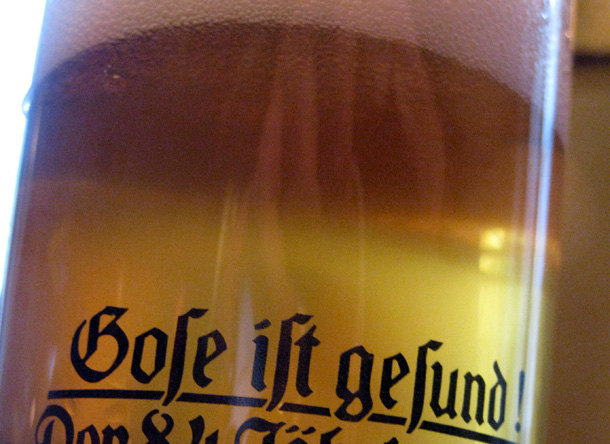
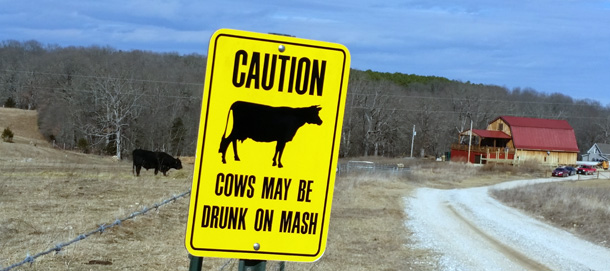
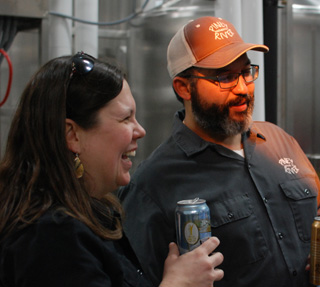 Piney River is located on a farm five winding miles outside of Bucyrus, Missouri, because Brian and Joleen Durham live on the farm. They bought their house in 1997 and the rest of the 80 acres they live on five years later. They raise beef cattle on the property, but were too busy with the brewery in 2015 to get around to selling any. They feed spent grain to the cattle and a sign on the long gravel driveway leading to the brewery warns, “Caution, cows may be drunk on mash.”
Piney River is located on a farm five winding miles outside of Bucyrus, Missouri, because Brian and Joleen Durham live on the farm. They bought their house in 1997 and the rest of the 80 acres they live on five years later. They raise beef cattle on the property, but were too busy with the brewery in 2015 to get around to selling any. They feed spent grain to the cattle and a sign on the long gravel driveway leading to the brewery warns, “Caution, cows may be drunk on mash.”